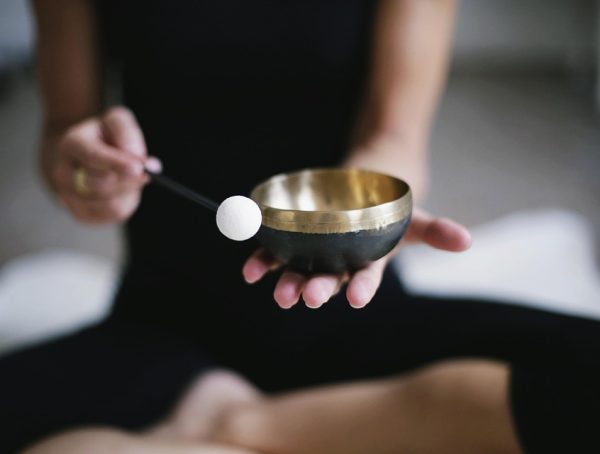The Science Behind Mindfulness Meditation and Anxiety Relief
In a world dominated by fast-paced living and constant connectivity, anxiety has become a common ailment. Many people find themselves seeking effective ways to manage and reduce their stress levels. Enter mindfulness meditation—a practice rooted in ancient traditions but scientifically validated for its therapeutic benefits. Let’s dive into the science behind mindfulness meditation and its effects on anxiety relief while offering you practical steps to incorporate it into your daily routine.
Understanding Anxiety and its Impacts
Anxiety manifests in various forms—generalized anxiety disorder (GAD), panic disorder, social anxiety, and more. It can lead to physical symptoms like a rapid heartbeat, fatigue, difficulty sleeping, and gastrointestinal disturbances. Beyond physical manifestations, anxiety can have profound effects on mental health, influencing mood, perception, and overall quality of life.
The Mechanisms of Mindfulness Meditation
Mindfulness meditation involves paying attention to the present moment without judgment. It encourages individuals to observe their thoughts, feelings, and bodily sensations with openness and acceptance. The scientific underpinnings of mindfulness meditation reveal how it can effectively alleviate anxiety:
1. Neurological Changes
Research using neuroimaging technology has shown that regular mindfulness meditation can lead to structural changes in the brain. Studies found increases in gray matter density in areas associated with emotional regulation, learning, and memory, such as the prefrontal cortex and hippocampus. Simultaneously, the amygdala—the brain’s core area for processing fear—often shows decreased activity, leading to reduced anxiety responses.
2. Reduction of Stress Hormones
Mindfulness meditation has been found to lower levels of cortisol, the body’s primary stress hormone. High cortisol levels are linked to anxiety and stress, so reducing its secretion can enhance well-being and foster a more relaxed state.
3. Enhanced Emotional Regulation
The practice of mindfulness helps individuals become more aware of their thoughts and emotions as they arise. By observing rather than reacting impulsively, practitioners can reduce the intensity of emotional responses, leading to a decrease in anxiety levels. This skill of emotional regulation helps to establish a buffer against the overwhelming feelings that often accompany anxiety.
4. Distraction Reduction
Mindfulness aids in redirecting attention away from negative spirals of thought. Many people experience anxiety due to rumination—replaying negative experiences in their minds—leading to a cycle of distress. Engaging in mindfulness meditation allows individuals to break this cycle and focus on the present rather than the past or future.
Practical Steps to Begin Mindfulness Meditation for Anxiety Relief
The idea of starting a new practice can feel overwhelming, but incorporating mindfulness meditation into your life can be seamless and immensely beneficial. Here’s how to get started:
1. Set Aside Time
Dedicate a specific time each day for meditation. Morning or evening works best for many individuals. Begin with just 5-10 minutes a day, gradually increasing as you feel more comfortable.
2. Create a Space
Find a quiet, comfortable space where you won’t be disturbed. This could be a corner of your room, a garden, or any calming environment. Make it inviting by adding soft cushions or lighting candles.
3. Get Comfortable
Sit or lie down in a comfortable position. You can sit cross-legged on the floor, on a cushion, or in a chair with your feet flat on the ground. Ensure your posture is relaxed but alert—consider extending your spine to promote openness.
4. Focus on Breath
Start with your breath. Close your eyes, inhale deeply through your nose, allowing your chest and abdomen to rise. Exhale slowly through your mouth. Focus entirely on the sensation of your breath entering and leaving your body. If your mind wanders (as it will), gently bring your focus back to your breath without judgment.
5. Expand Awareness
As you become accustomed to focusing on your breath, you can expand your awareness. Notice the sensations in your body, your thoughts, and the environment around you. Observe them without judgment; simply let them come and go.
6. Use Guided Meditations
If you find it challenging to meditate on your own, consider using guided meditations through apps like Headspace, Calm, or Insight Timer. These resources often have programs specifically targeting anxiety relief.
7. Stay Consistent
Consistency is key. Try to integrate mindfulness meditation into your daily routine. Keeping a journal to track your thoughts and feelings before and after meditation can reinforce the benefits you experience.
Concluding Thoughts
Mindfulness meditation stands out as a powerful tool for anxiety relief, supported by a growing body of scientific research. Evidence suggests that it not only softens anxiety but also promotes overall mental wellness. By dedicating a few minutes each day to practice mindfulness, you’re investing in your mental health and equipping yourself with a valuable skill set for managing life’s challenges.
As you embark on this journey, remember: “The mind is everything. What you think you become.” — Buddha. Cultivating a mindful approach can transform your thoughts and, ultimately, your life.
If you enjoyed this article and want to stay connected for more insights and tips on mental health and wellness, follow Kevin on Instagram at @KSteineman. Let’s foster a community of support and growth together!
You might also like
More from Meditation
The Role of Mantras in Transcendental Meditation: A Deep Dive
The Role of Mantras in Transcendental Meditation: A Deep Dive Transcendental Meditation (TM) has garnered a significant following across the globe, …
The Science Behind Meditation: Improving Mental Health Naturally
The Science Behind Meditation: Improving Mental Health Naturally In today's fast-paced world, the pursuit of mental wellness has become paramount. Thousands …
Understanding the 7 Types of Meditation for Beginners
Understanding the 7 Types of Meditation for Beginners: A Path to Inner Peace Meditation has become a popular practice in recent …


































